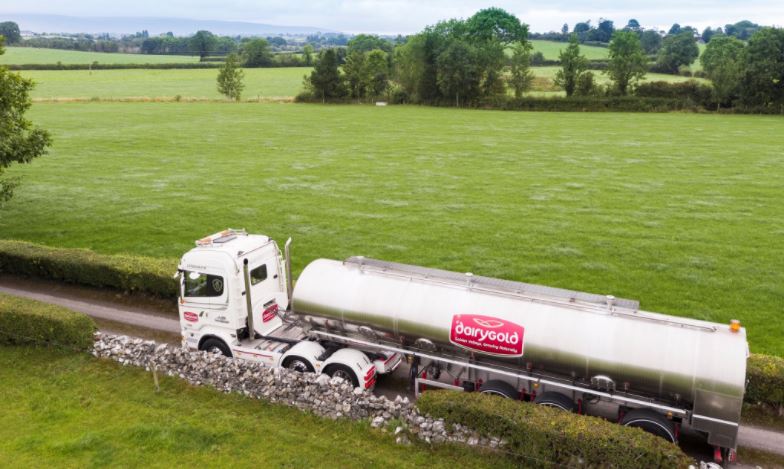Dairygold is “in a good position from a capacity point of view to 2025”, according to leading figures within the southern cooperative.
Following the announcement of the co-op’s financial results for 2020 earlier today (Wednesday, April 7), Dairygold’s CEO Jim Woulfe, chairman John O’Gorman and CFO Michael Harte spoke to Agriland to discuss last year’s performance.
Milk supplies and capacity
Commenting on milk supplies sent in, Harte said: “Milk supply was moderately increased by 2.7% to 1.43 billion litres in 2020.
“It’s up 70% over the last decade – but the key thing that was completed in 2020 was the milk planning census which predicted more manageable or modest growth over the next five years of 2.6% per annum.
“From Dairygold’s perspective, after completing the investment of €130 million, that means – and taking account of the census – we have sufficient processing capacity in place up to 2025.”
Commenting on milk supply for 2020, the CFO noted that “nearly 14% of the milk was taken in in May”.
“Our peak was just around 44.5 million litres – and the processing capacity that we have now in place is 52 million litres, based on the investments we have made, based on the product mix and also customer contracts that we would have in place,” Harte said.
Woulfe then spoke, explaining: “There’s a lot done here; we have been coming through a huge capital programme over the decade and 2020 brought about the validation of commissioning the final amount of those projects form the point of view of capacity. Thankfully we have that in place.
“We’re in a good position with our members from a capacity point of view out to 2025.
“We have other projects in the pipeline as well, if the growth continues, in how we’ll deal with that; so, there is quite an amount of forward planning done,” the CEO said.
‘We didn’t waste Covid’
“We didn’t waste Covid; certainly we very much focused on what was in our control within the business,” Woulfe continued.
“There was no point in talking to our board of directors about opening new markets in Asia or North Africa or Middle East because there was no travel, you couldn’t do that, so the issue and the focus turned around to be within the business.
“We carried out an End-2-End review and that was reviewing all we had invested to make sure that we had the proper lean manufacturing systems in place, the right amount of people, the right amount of efficiency and all that.
“Secondly then, how we manage milk to cash, how we manage our whole processes in the context of our working capital in the businesses – and I must say we gave that a real priority.
“As a result of that it meant managing our stocks and debtors much better, focusing in that area, right across the organisation,” Woulfe added.
“From that perspective, we were able to reduce our bank debt by €38.7 million, which is really sizeable on the basis of all the investment done.
“But the reality is that we have regenerated four dairy sites within the organisation, so a huge amount of capital gone into the business but nevertheless those sites and that processing is very secure for the future now.
“Overall, taking Covid into account and taking into account the markets and the disruption that took place in March, April and May last year, we have what we would describe as a strong set of accounts based on that.
“We’re pretty pleased on where we are at the end of 2020 within the business: a stronger balance sheet, very manageable from a debt point of view; member funding up; and a clear direction of the future as well,” the CEO concluded.
